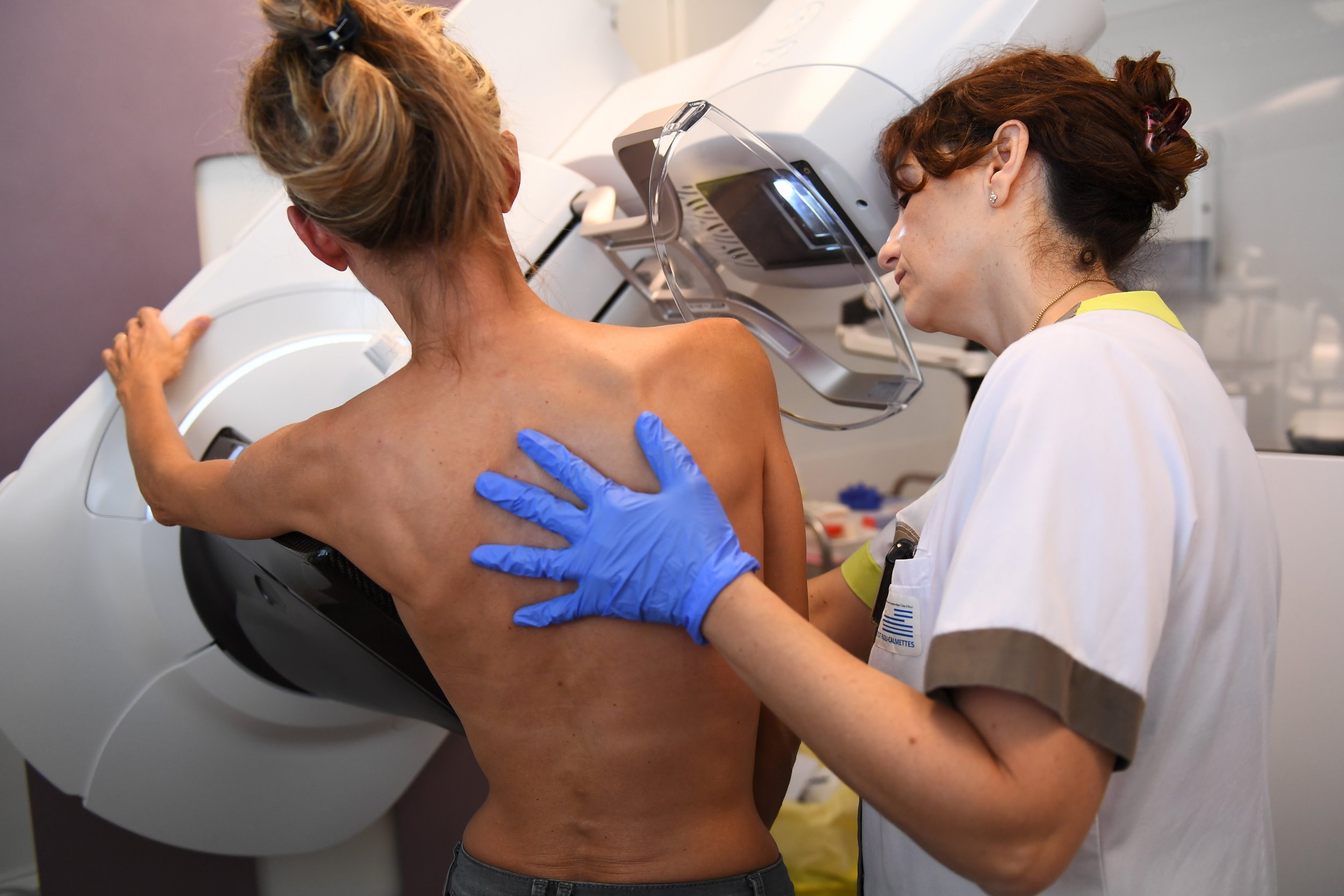
New research suggests that in addition to being at higher risk of developing breast cancer, overweight women are more likely to have larger tumors at the time of diagnosis. The results could mean that such women should have mammograms more frequently than typically recommended.
Body mass index—or BMI, which is calculated by pitting height against weight—is not currently a factor in breast cancer screening guidelines, but perhaps it should be. A study to be presented at the Radiological Society of North America in Chicago on November 29 found a link between the two.
The study subjects were more than 2,000 Swedish women between the ages of 55 and 74. All were diagnosed with breast cancer between 2001 and 2008. For the study, the researchers defined a BMI of 25 or greater as obese, a guideline used in both the U.S. and Europe. Results revealed that both being obese and having denser breast tissue were linked to higher odds of having a large tumor at the time of diagnosis. However, only BMI was associated with large tumors detected within 12 months of the last mammogram.
The finding suggests that the current mammogram scheduling may not be frequent enough to detect these tumors before they become too large. Generally speaking, the larger the tumor, the harder it is to treat, which is why many health care authorities highlight the importance of early diagnosis.
Why obesity may cause these tumors to grow faster and larger in a shorter amount of time is unclear. The connection does not appear to be tied to breast size. "Even when we took breast size into account in our analysis, there was an independent, though less pronounced, effect of BMI [or obesity]," Dr. Fredrik Strand, study author and a radiologist at Karolinska University Hospital, told Newsweek by email. Rather, fatty tissue may be the culprit; past research has suggested that cancer cells grow faster in such cells.
Related: A New Theory on Cancer: What We Know About How It Starts Could All Be Wrong
Breast cancer screening is controversial. Three years ago, a lengthy investigation by the Institute for Clinical and Economic Review found that mammograms could be beneficial depending on other relevant factors, such as a history of breast cancer in the immediate family, but emphasized that the evidence supporting routine mammograms was thin. In 2015, a landmark study published in JAMA Internal Medicine reported that mammograms did not lower the risk of dying from breast cancer. And a Danish study from earlier this year found that a third of breast lesions found by mammogram were likely harmless and did not warrant treatment.
The U.S. Preventive Services Task Force currently recommends that women between the ages of 50 and 74 have a mammogram every two years. For women under age 50, says the Task Force, individual decisions about mammograms should be based on family history and other relevant factors, as well as a personal assessment about the pros and cons of screening.
Related: Breast Cancer: BRCA Study Sent to Canada Because U.S. Thinks Women Can't Handle Genetic Test Results
This new study suggests that obese women may require different guidelines, including shorter intervals between screenings. "I don't think our findings alone will change any recommendations," said Strand. "If more studies would come to the same conclusion, then perhaps there should be a discussion about the frequency of screening of overweight and obese women."
Uncommon Knowledge
Newsweek is committed to challenging conventional wisdom and finding connections in the search for common ground.
Newsweek is committed to challenging conventional wisdom and finding connections in the search for common ground.
About the writer
To read how Newsweek uses AI as a newsroom tool, Click here.








